Occupational Therapy Assistant Cover Letter Examples

May 29, 2025
|
12 min read
Craft a compelling occupational therapy assistant cover letter that "moves" employers. Highlight your helping "handywork" and showcase how your skills assist clients' progress. Make them see you as a valued part of their rehabilitation team.
Rated by 348 people
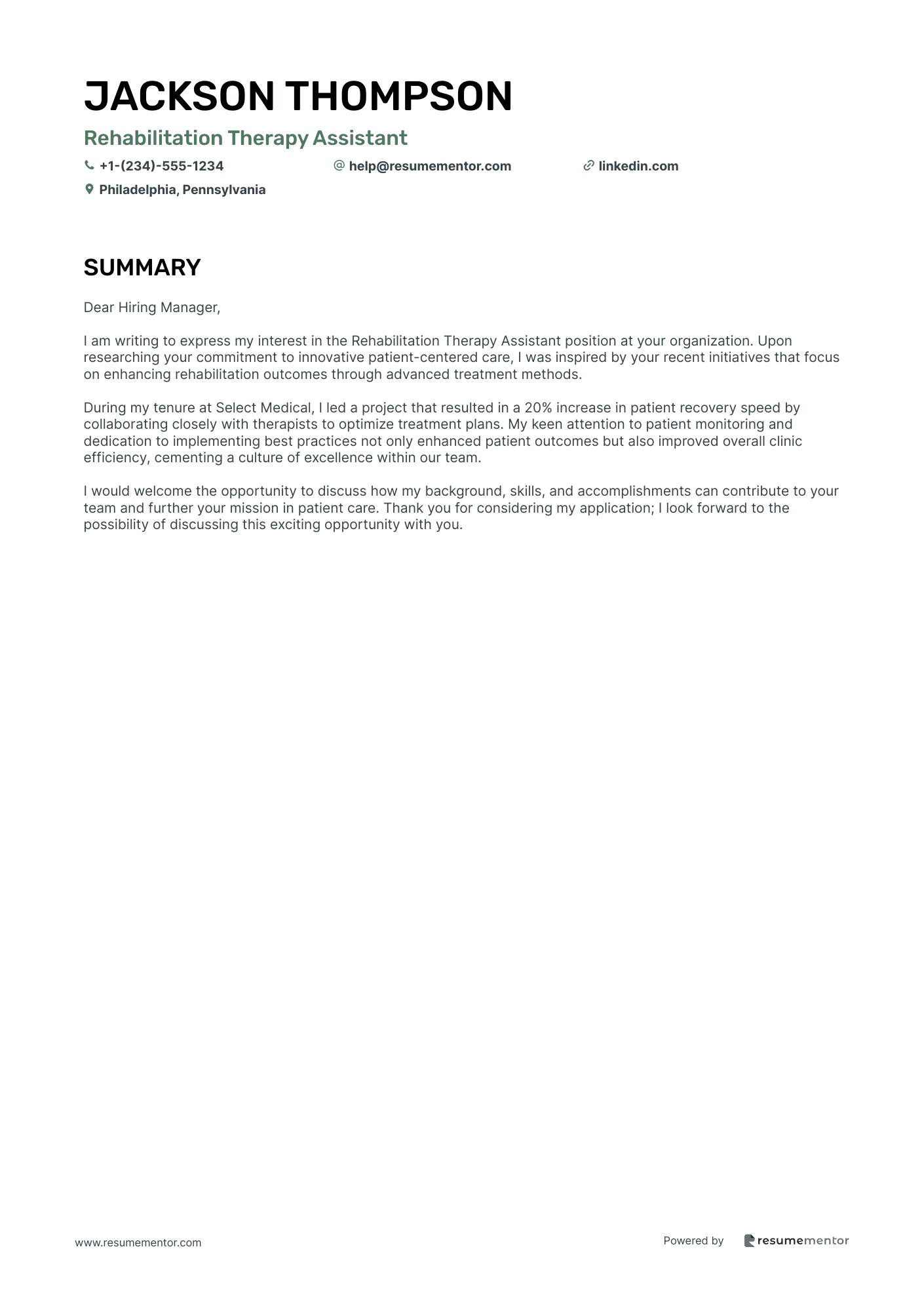
Rehabilitation Therapy Assistant
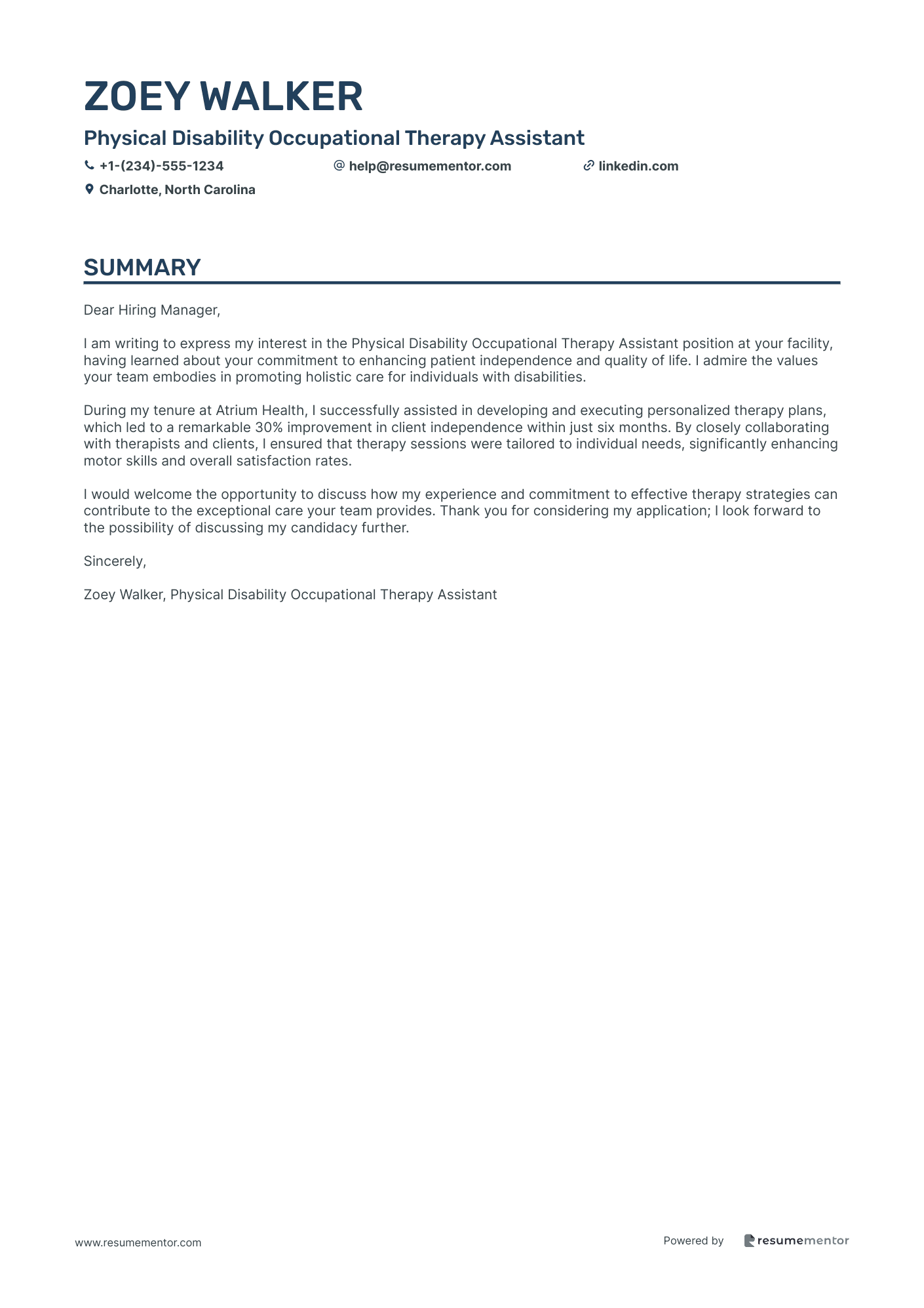
Physical Disability Occupational Therapy Assistant
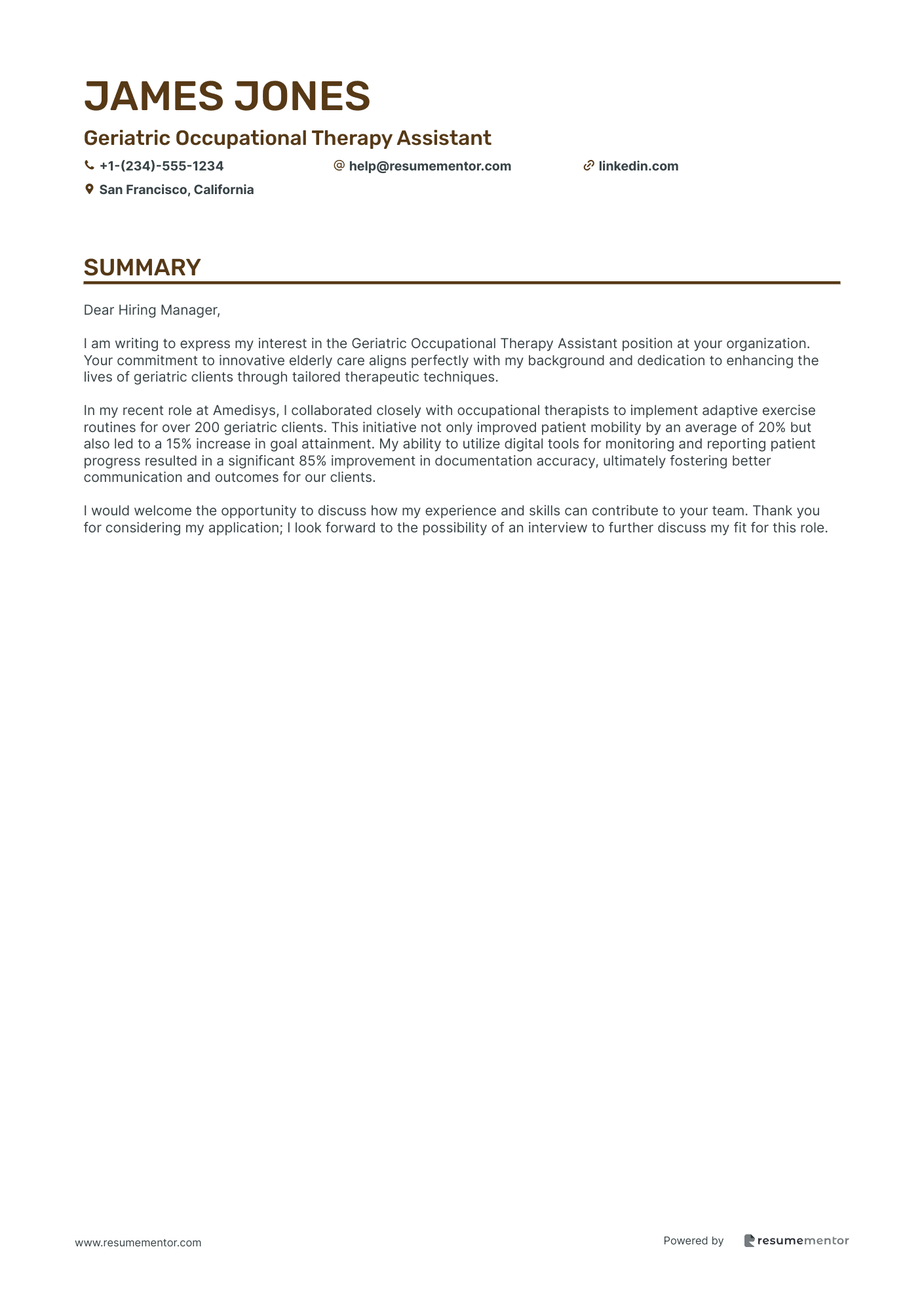
Geriatric Occupational Therapy Assistant
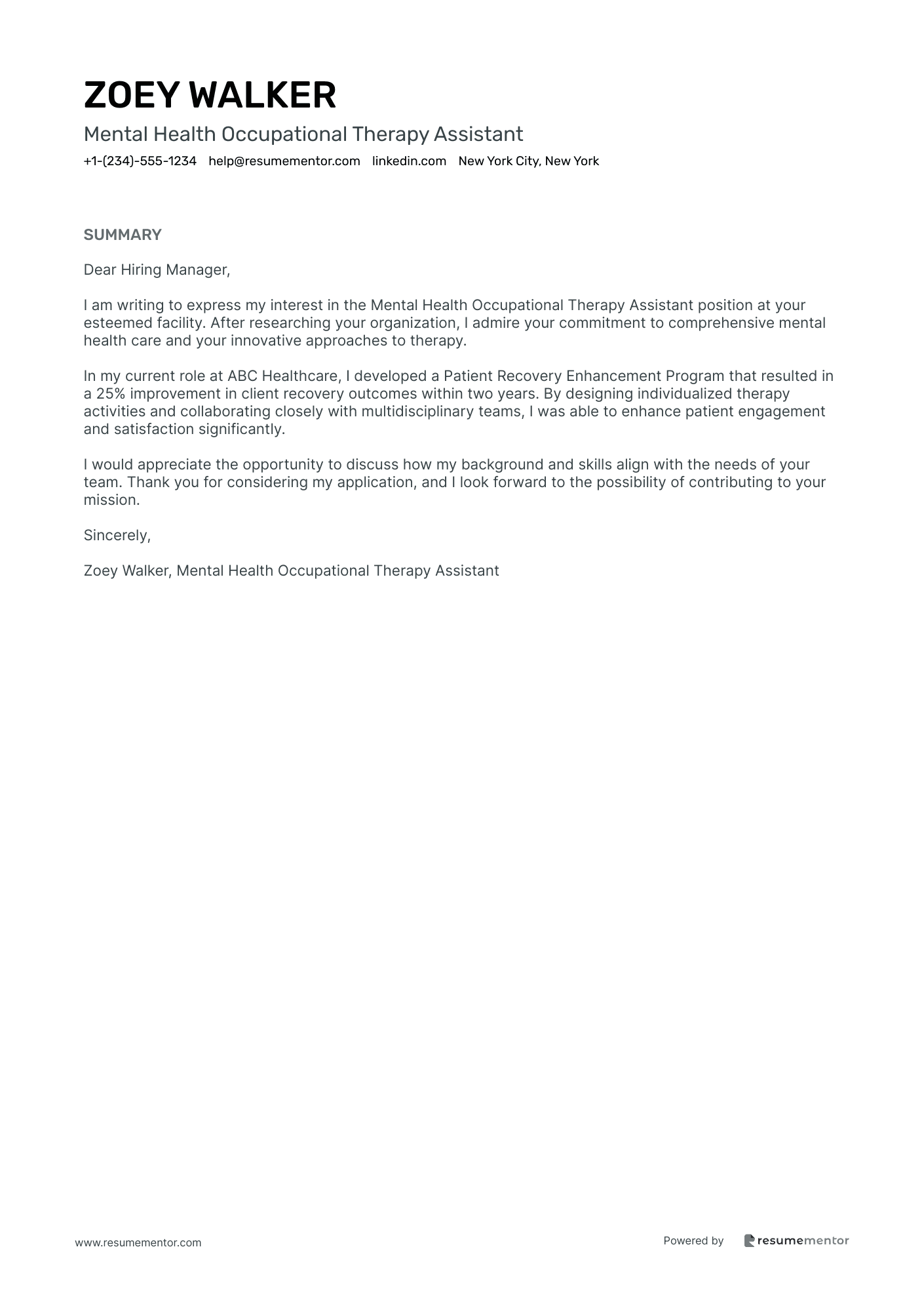
Mental Health Occupational Therapy Assistant
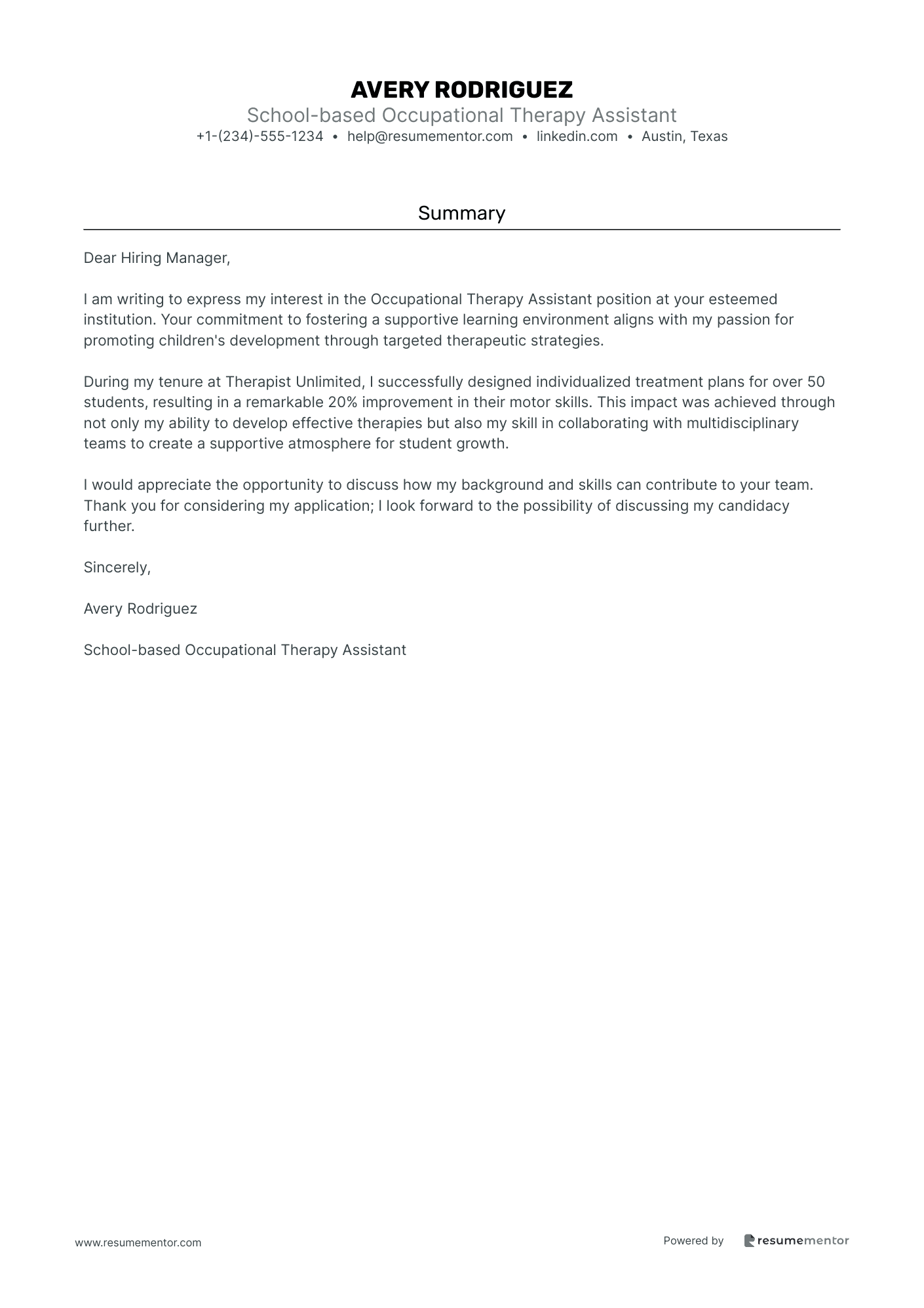
School-based Occupational Therapy Assistant
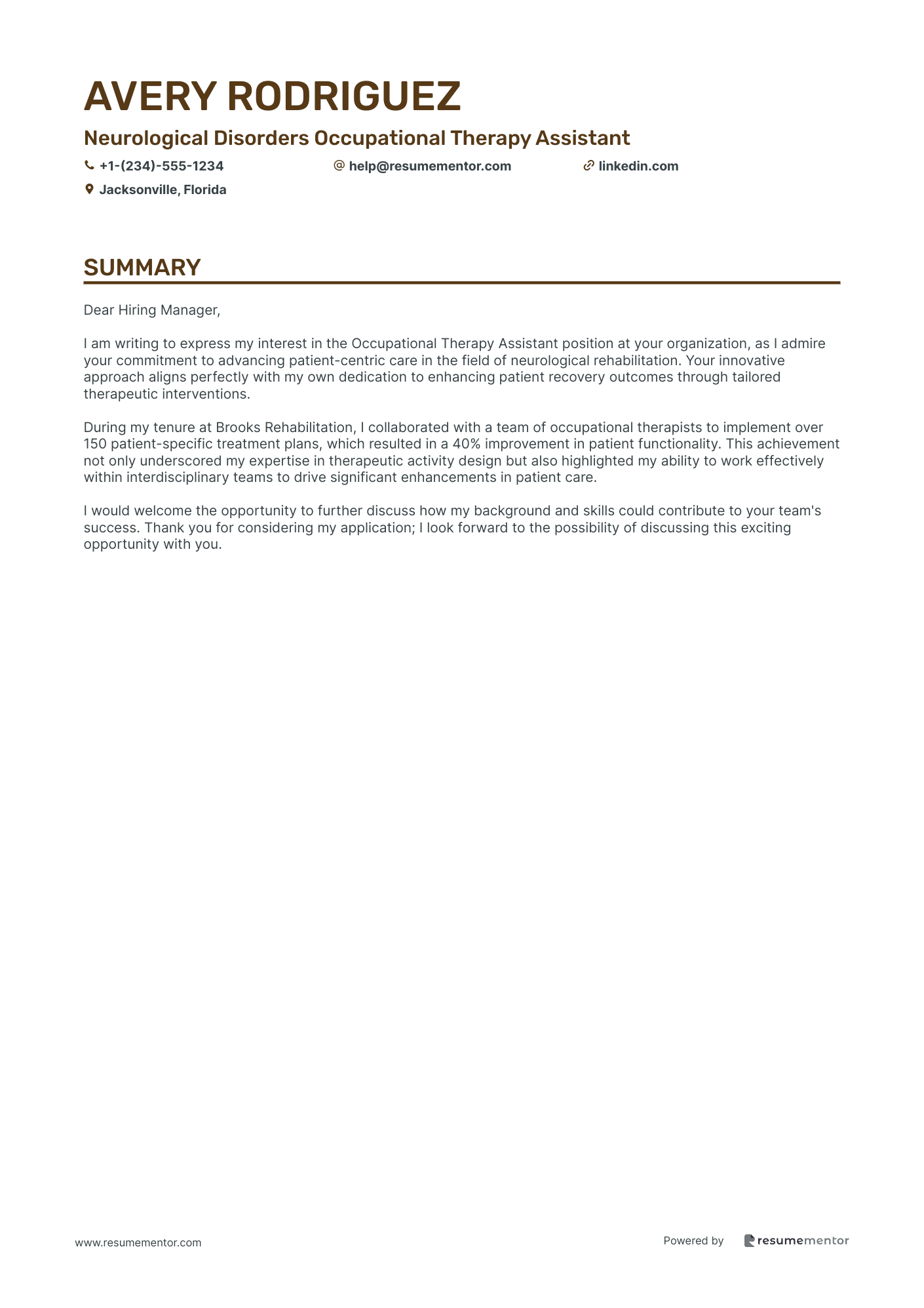
Neurological Disorders Occupational Therapy Assistant
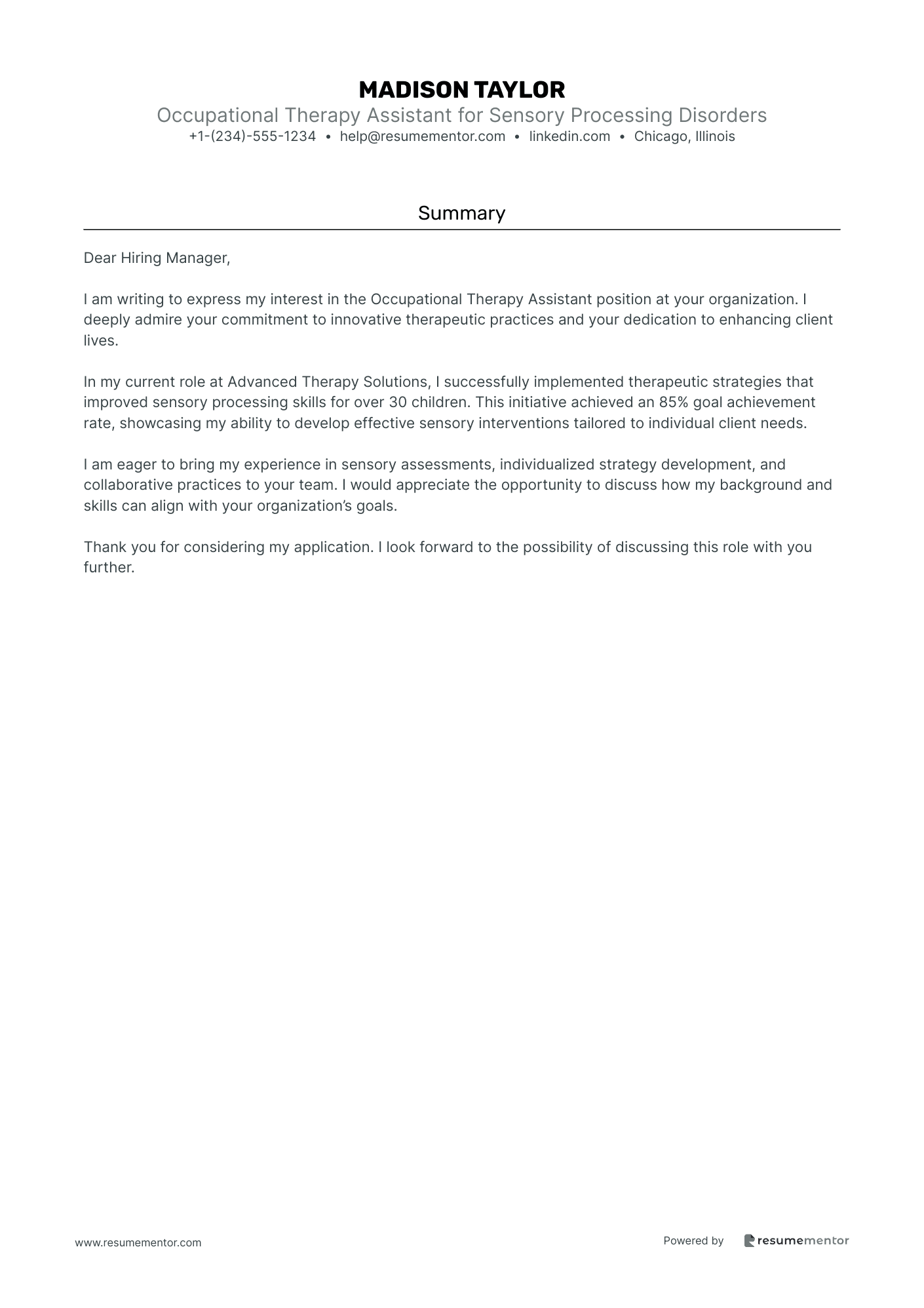
Occupational Therapy Assistant for Sensory Processing Disorders
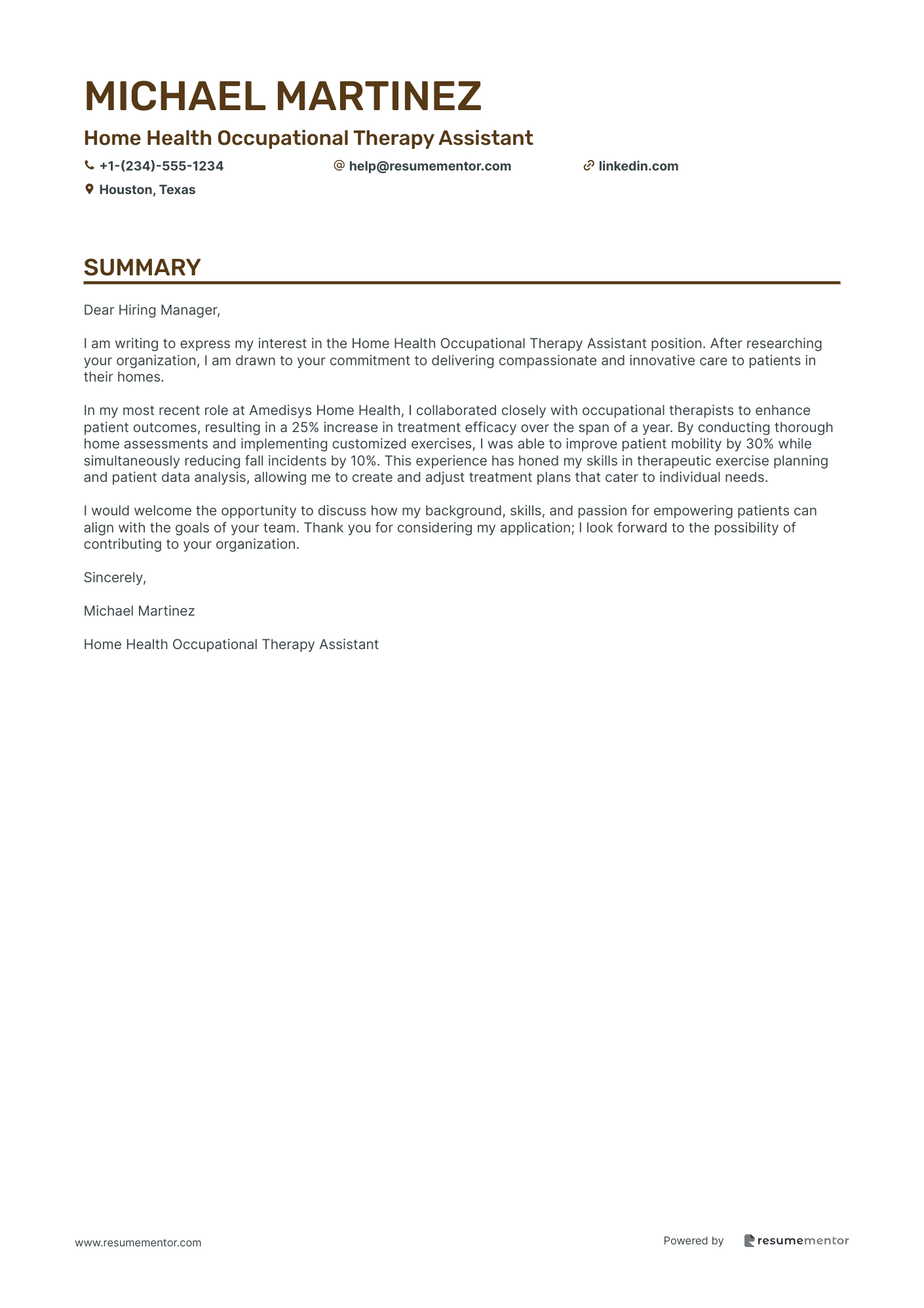
Home Health Occupational Therapy Assistant
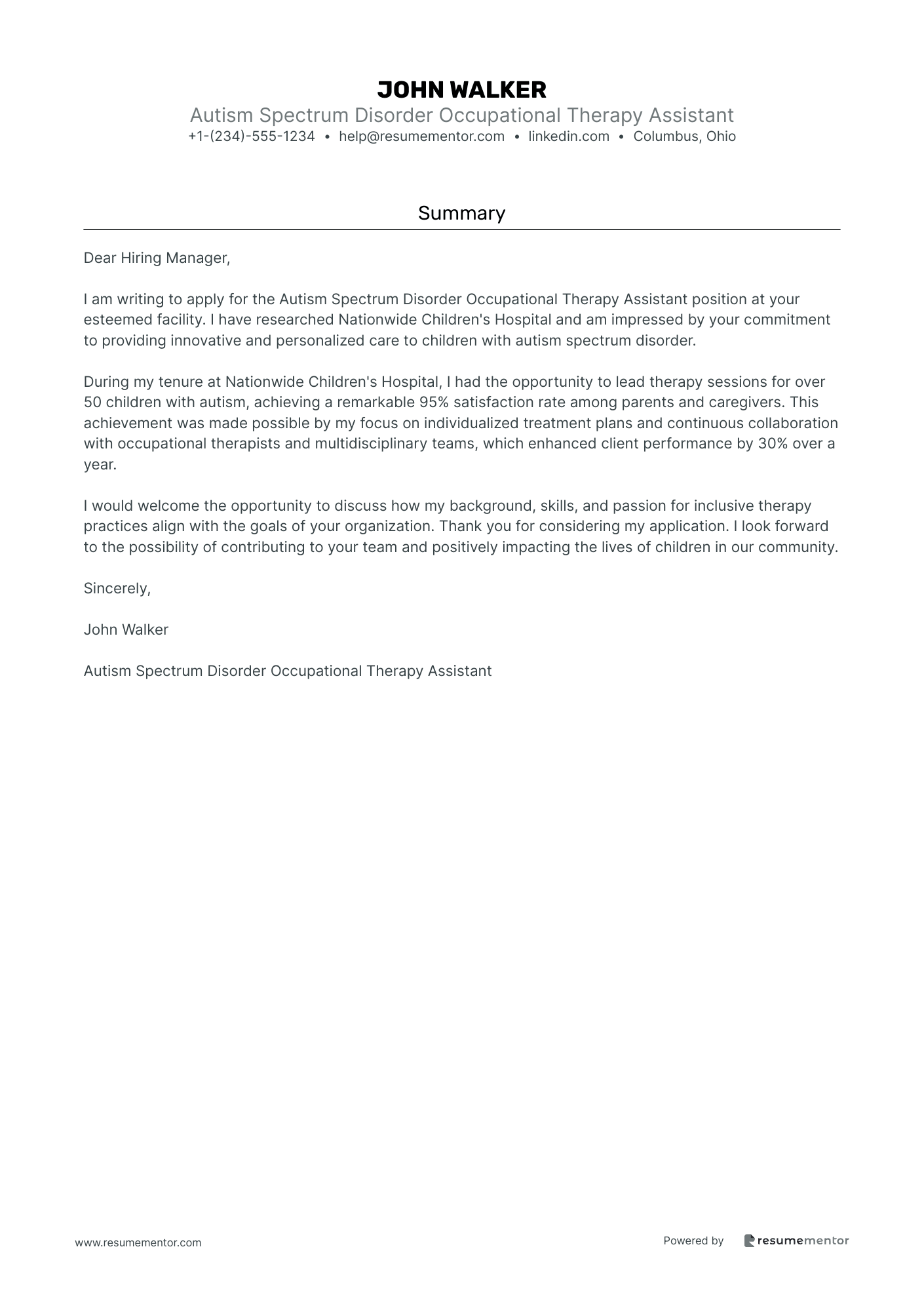
Autism Spectrum Disorder Occupational Therapy Assistant
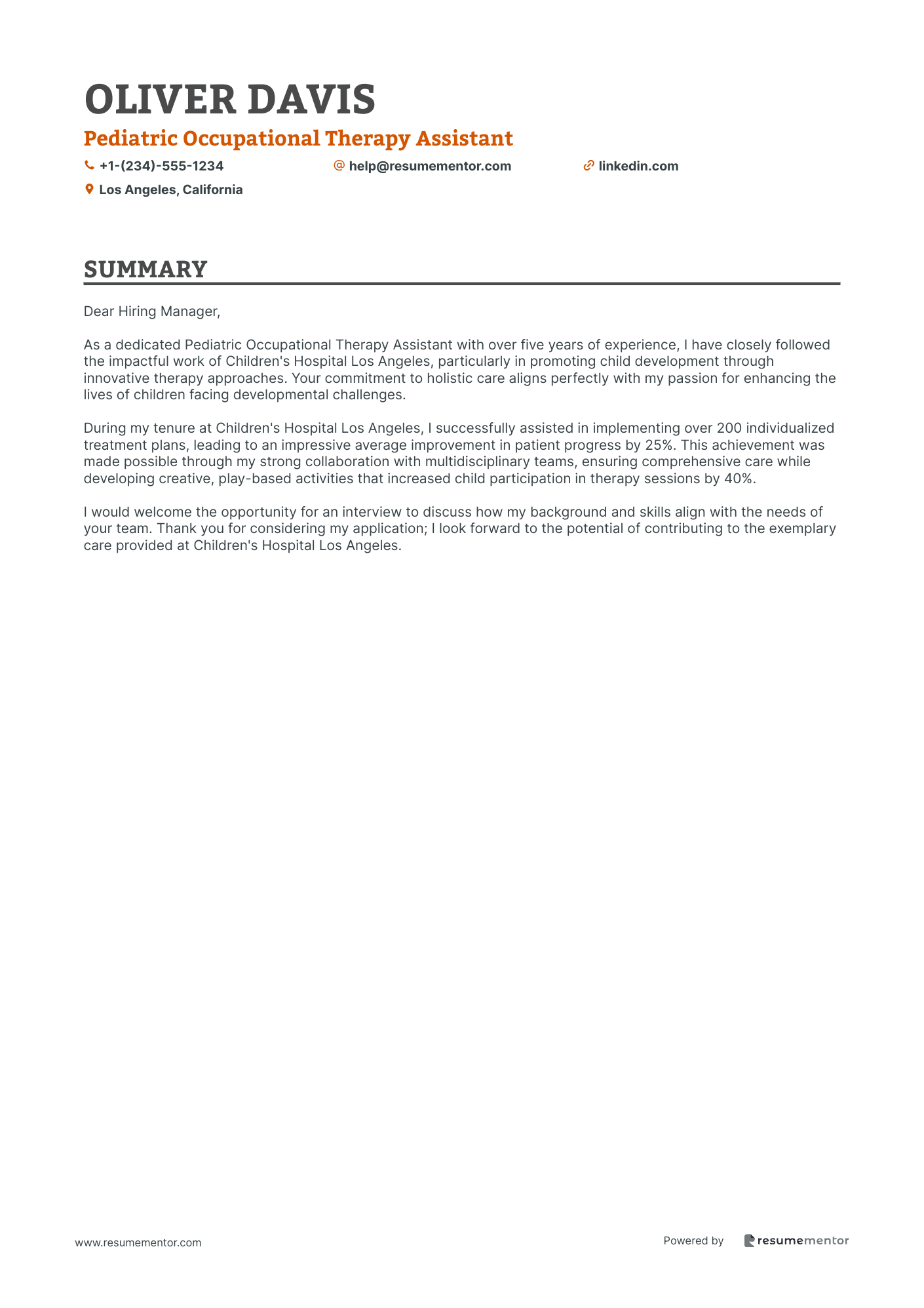
Pediatric Occupational Therapy Assistant

Rehabilitation Therapy Assistant cover letter sample
Physical Disability Occupational Therapy Assistant cover letter sample
Geriatric Occupational Therapy Assistant cover letter sample
Mental Health Occupational Therapy Assistant cover letter sample
School-based Occupational Therapy Assistant cover letter sample
Neurological Disorders Occupational Therapy Assistant cover letter sample
Occupational Therapy Assistant for Sensory Processing Disorders cover letter sample
Home Health Occupational Therapy Assistant cover letter sample
Autism Spectrum Disorder Occupational Therapy Assistant cover letter sample
Pediatric Occupational Therapy Assistant cover letter sample
Related Articles

Continue Reading
Check more recommended readings to get the job of your dreams.
Resume
Resources
Tools
© 2026. All rights reserved.
Made with love by people who care.
